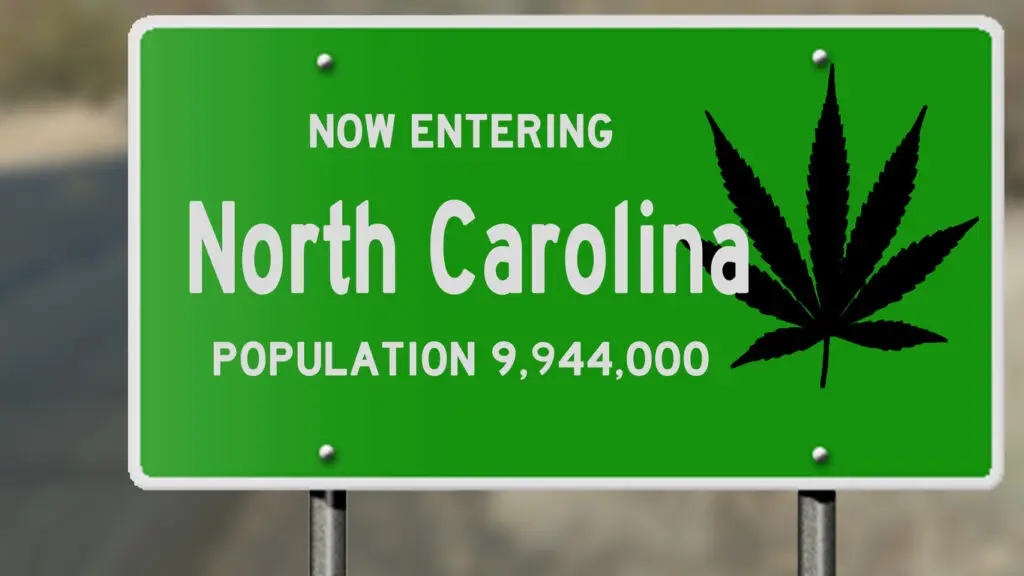Eastern Band of Cherokee Indians Issues Medical Cannabis Cards in North Carolina – Everything There is to Know
As the saying goes, “A journey of a thousand miles begins with a single step.”
For North Carolina, that step is a revolutionary move by the Eastern Band of Cherokee Indians: they are starting to issue medical cannabis cards. Adults over 18 can now get a medical cannabis card that lets them use medical marijuana legally for health problems. It’s the beginning of a new path in North Carolina’s healthcare.
Today, we’ll talk about what this significant step means for the state’s population. We will also share what it takes for NC residents to obtain legal cannabis in the future.

What is Medical Cannabis?
First things first, what exactly is medical cannabis? Often referred to as medical marijuana, this term describes products that are derived from the Cannabis sativa plant and are used to alleviate symptoms of various medical conditions.
Among the many compounds found in this plant, THC (delta-9 tetrahydrocannabinol) and CBD (cannabidiol) are the two compounds that are studied and researched the most. THC is the culprit behind the “high” sensation, whereas CBD carries no such effect.
In the United States, the federal stance on marijuana usage is clear — prohibition. However, a significant number of states disagree with this position and allow medical cannabis to treat conditions and diseases such as chronic pain and nausea. This is considered “medical marijuana”, “medical cannabis” or (more commonly an informally known as) “legal weed”.
What is Medical Cannabis Used for and Are There Side Effects?
Medical cannabis has been found to help individuals who are battling conditions like Alzheimer’s disease, ALS, HIV/AIDS, Crohn’s disease, epilepsy, glaucoma, multiple sclerosis, severe pain, and the harsh nausea accompanying cancer treatments. This means that cannabis for pain and cannabis for nausea are significant areas of interest for both patients and researchers.
The forms of medical cannabis are diverse. They include pills, liquids, oils, powders, and dried leaves.
But what about the medical cannabis side effects? Yes, they exist — they can range from an increased heart rate to dizziness, and even impact concentration. However, in many cases, the benefits (for nausea or pain management) outweigh the downsides for legal marijuana patients.
How Did the Eastern Band of Cherokee Indians Start Issuing Cannabis Cards?
How did the Eastern Band of Cherokee Indians start legally issuing cannabis cards? This decision wasn’t made on a whim.
Back in 2021, the community cast a decisive vote and agreed to legalize marijuana for medical use. This opened the doors to medical cannabis on their territory – the Qualla Boundary.
But they didn’t stop there. Just a few months ago, the EBCI also voted to legalize the possession and recreational use of cannabis. These actions reflect the tribe’s openness to the potential benefits that cannabis offers – both for medical purposes and recreational enjoyment.
How to Get a Medical Cannabis Card in North Carolina
Securing a medical cannabis card in North Carolina turns out to be quite straightforward. Since the state Senate gave the green light to a medical marijuana bill, interest has skyrocketed.
So far, over 1,000 individuals have applied for their medical cannabis cards. More than 800 of these individuals have already gotten approved for the medical cannabis program, which means they will soon receive their cards.
This shows that more and more people in North Carolina want to use medical cannabis. Currently, the North Carolina cannabis legalization is for members of the Eastern Band of Cherokee Indians, but there are plans to make it available to more people in the state who are interested in using cannabis for health reasons.
So, which conditions can get treated with medical cannabis in the near future? Senate Bill 711 contains the law that specifies a list of conditions that make someone eligible for cannabis. These include:
- Cancer
- Epilepsy
- ALS
- Crohn’s disease
- PTSD
The bill does not yet include Alzheimer’s disease, glaucoma, or severe chronic pain, but there is a chance these could be added later.
Anyone who is interested in getting a cannabis card should keep an eye out for any updates and make sure they meet the state’s requirements.
Economic Benefits of Legalizing Medical Cannabis in North Carolina
The shift towards legalizing medical cannabis in North Carolina is not just a matter of public health but also a potential economic gain.
According to projections from a Senate bill, the state could witness a revenue increase to $15.1 million, with the possibility of this figure increasing to $44.4 million by 2028. These predicted numbers show just how impactful legalizing medical cannabis could be for the economy.
Additionally, the Eastern Band of Cherokee Indians’ move into medical cannabis could pave the way for broader law changes throughout North Carolina. Their effective management and rules for using medical cannabis could serve as a model for the state’s future laws on legalization. This effort might help in spreading wider acceptance of medical cannabis across the state.
The Impact of Medical Cannabis on North Carolina Communities
Advocates for cannabis reform, such as the Marijuana Policy Project, are celebrating the recent developments toward the legalization of medical cannabis. They are recognizing its potential to dramatically enhance and change lives. For a growing number of people with chronic or serious conditions, medical cannabis is becoming a realistic and preferable choice over traditional pharmaceuticals. It helps without the harsh side effects.
The implications of this shift go far beyond individual health benefits. Providing regulated, lawful access to cannabis not only helps those who really need it – it also makes more people see cannabis as a real option for medical treatment. This effort is changing how people think and making communities across North Carolina more understanding and supportive of using medical cannabis.
What's Next for Medical Cannabis in North Carolina?
Looking ahead, there is a lot of excitement about the new dispensary from the Eastern Band of Cherokee Indians and how medical cannabis might be made more available. These next steps promise to further integrate medical cannabis into North Carolina’s healthcare offerings. They could set an example for similar initiatives across other states.
The work of the Eastern Band of Cherokee Indians in this area is a big deal not just locally but for the whole story of medical cannabis in North Carolina and even further. By making laws and rules for medical cannabis, they’re not just making it easier to get medical help but also leading the way in changing health care and how we think about medicine in the state.
Get Your Medical marijuana certification North Carolina
Get ahead of the curve and pre register NOW

